About the Committee
The NIDA IRP Technology Development Initiative’s (TDI) Paper of the Month (POTM) Committee is entering its third year of service. There are two primary goals of the POTM committee. First, we review and highlight papers on emerging technology that have potential or demonstrated use for substance abuse and addiction-related research. Second, we give NIDA IRP fellows an opportunity to review primary literature and present to peers. Papers that are highly scored by the committee are featured on the IRP website and monthly IRP-wide emails.
For our third year, TDI is offering an opportunity for pre-doctoral, post-doctoral, visiting and research fellows, Staff Scientists, PIs and Core staff to serve on the committee for reviewing and selecting papers highlighting emerging technologies. Meetings are held quarterly and members present only 1 paper per meeting. The voting structure for selected papers will be on a weighted scoring scale based on: 1) Relevancy to NIDA, 2) Accessibility to Technology, 3) Paper Quality, 4) Novelty, and 5) Stage of Development.
Join Us
We are striving for representation from preclinical AND clinical research.
If you are interested in joining or would like to recommend a new member (Note: PostBacs may be considered with a strong recommendation), please reach out to NIDA IRP TDI by February 7.
Disclaimer
The opinions expressed are the NIDA IRP POTM Committee members’ own and do not reflect the view of the National Institutes of Health, the Department of Health and Human Services, or the United States government.
Current Committee Members
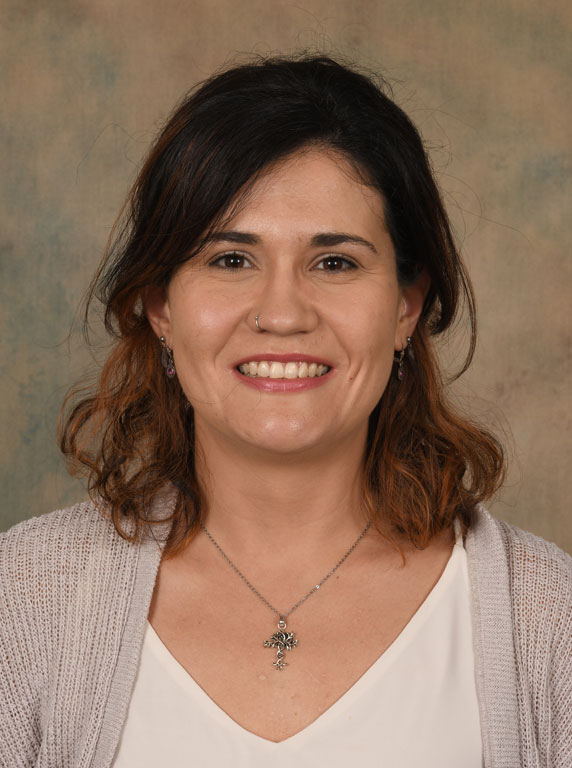
Renata Marchette
Integrative Neuroscience Research Branch
Neurobiology of Addiction Section
Active (Member – 2024-Present)
Renata is a Staff Scientist at the Neurobiology of Addiction Section (PI: George Koob). Renata received her Pharm.D. from Sao Paulo State University (Brazil) in 2011 and obtained her M.S. and Ph.D. in Pharmacology from Federal University of Santa Catarina (Brazil) in 2013 and 2017, respectively. At NIDA, her research focuses on rodent models of opioid use disorder and how sex influences the modulation of neuropeptides in opioid addiction-like behaviors. Her long-term goal is to identify new targets for the treatment of drug use disorders.
 Agnieszka Sulima
Agnieszka Sulima
Drug Design and Synthesis Section
Molecular Targets and Medications Discovery Branch
Active (Member – 2023-Present)
Agnieszka Sulima is a Staff Scientist in the Drug Design and Synthesis Section where she applies synthetic and medicinal chemistry as well as pharmacokinetic and pharmacodynamic principles in the design and synthesis of small molecules with drug-like properties. Her research is focused on the synthesis of ligands interacting with the central nervous system, particularly opioid receptor ligands associated with analgesia and opioid use disorder.
Zilu Ma
Integrative Neuroscience Research Branch
Magnetic Resonance Imaging and Spectroscopy Section
Active (Member – 2024-Present)
Zilu Ma is currently a Research fellow at the Magnetic Resonance Imaging and Spectroscopy section in NIDA. She earned her Ph.D. in Biomedical Engineering from The Pennsylvania State University in 2020. Her current research at NIDA focuses on using non-invasive neuroimaging and neuromodulation methods to investigate the neural circuits that underlies different stages of substance abuse in preclinical research. Dr. Ma is also a fellow at the Center on Compulsive Behaviors at NIH.
Simon Couly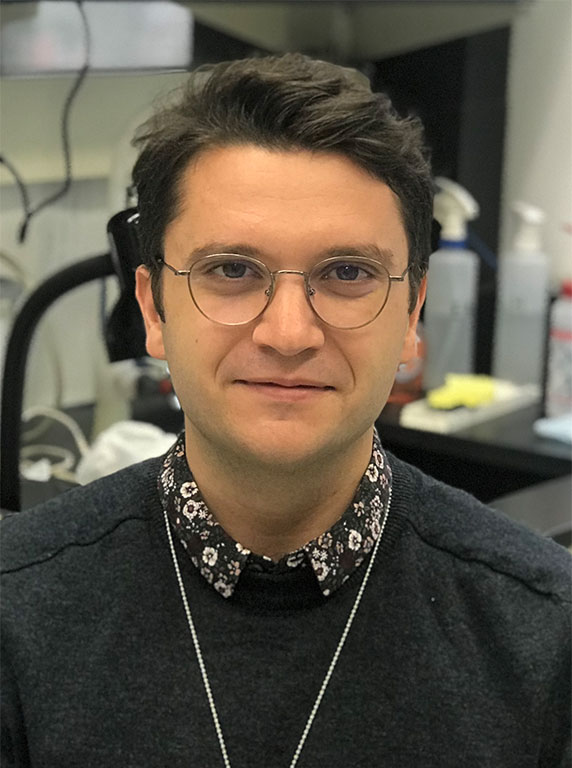
Integrative Neuroscience Research Branch
Cellular Pathobiology Section
Active (Member – 2024-Present)
After completing a bachelor’s degree in neuroscience and a master’s degree in biomedical physics, Simon Couly received his PhD in neuroscience on the development of a therapy to treat Huntington’s disease, a neurodegenerative disorder, at the University of Montpellier (Montpellier, FRANCE). As a post-doctoral fellow, he continued to work on Huntington’s disease, but also started to study other neurodegenerative disorders such as Amyotrophic Lateral Sclerosis and Alzheimer’s disease and focused on the relevance of Sigma-1 receptor. Dr. Couly moved in November 2019 to Dr. Tsung-Ping’s laboratory (NIH/NIDA; Baltimore, Maryland, USA) where he is a Research Fellow and continues to conduct studies on Sigma-1 receptor and its involvement in addiction.
Elliot Glotfelty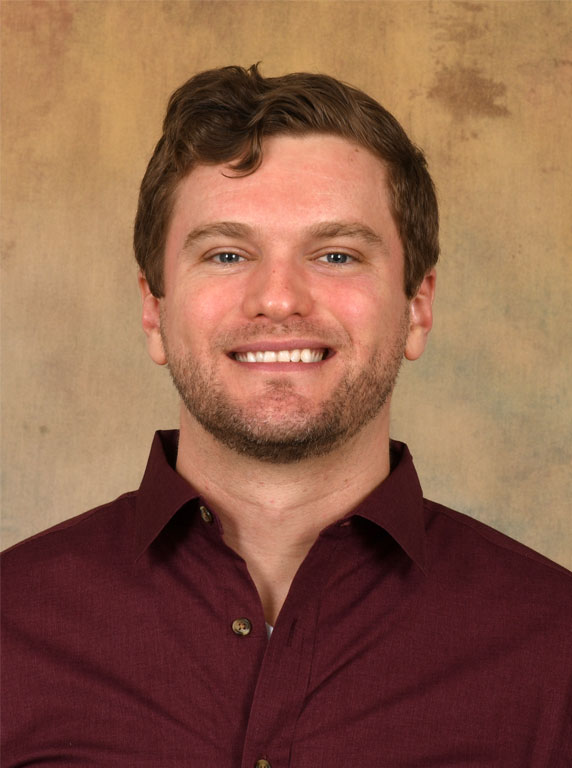
Integrative Neuroscience Research Branch
Cellular Stress & Inflammation Section
Active (Member – 2024-Present)
Elliot Glotfelty received his PhD in Neuroscience through the NIH/NIA- Karolinska Institutet graduate partnership program (GPP) under the mentorship of Dr. Nigel Greig and Professors Lars Olson. His thesis research was focused on 1) repurposing FDA approved diabetes medications (incretins mimetics) for treating neurodegenerative disease/injury and 2) investigating novel proteins involved in brain disease/injury associated neuroinflammation. Elliot joined Dr. Brandon Harvey’s lab in August 2023 as an IRTA Post-Doctoral Fellow and will focus his research on illuminating novel proteins involved in endoplasmic reticulum stress responses.
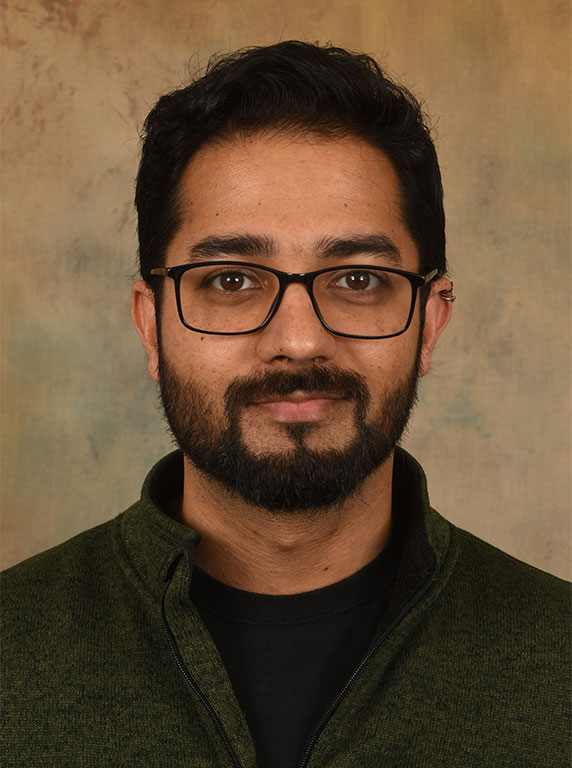
Rajtarun Madangopal
Behavioral Neuroscience Research Branch
Neuronal Ensembles in Drug Addiction Section
Active (Member – 2024-Present)
Past Committee Members
 Joshua Hinkle
Joshua Hinkle
Molecular Mechanisms of Cellular Stress and Inflammation Section
Integrative Neuroscience Research Branch
Alumni (Member – 2023-2024)
Josh Hinkle completed his PhD in Neuroscience at the University of Rochester, NY and is currently a postdoctoral fellow in Dr. Brandon Harvey’s lab. His research focuses on calcium dynamics and endoplasmic reticulum receptor trafficking in response to ER stress and disease.
 Brenton Laing
Brenton Laing
Neuronal Circuits and Behavior Section
Cellular and Neurocomputational Systems Branch
Alumni (Member – 2023-Present)
 Nicholas Beacher
Nicholas Beacher
Neural Engineering Unit
Behavioral Neuroscience Research Branch
Alumni (Member – 2023-2024)
Nicholas Beacher, Ph.D. joined Dr. Da-Ting Lin’s lab as a postdoctoral fellow in 2020 in the Behavioral Neuroscience Research Branch of NIDA IRP. Nicholas earned his Ph.D. in Psychology: Behavioral & Systems Neuroscience at Rutgers University and studied in vivo electrophysiology. His current research uses custom miniaturized head-mounted microscopes (MiniScopes) to explore in vivo calcium activity in the Nucleus Accumbens (NAc) of rats self-administering rewards under escalating ‘effort’ conditions.
 Tingting Liu
Tingting Liu
Technology and Translational Research Unit
Translational Addiction Medicine Branch
Alumni (Member – 2023-2024)
Tingting Liu is currently a Postdoctoral researcher at NIDA. Her research focuses on social relationships, risk-taking, and mental health. She uses interdisciplinary approaches from psychology, neuroscience, and data science to fill gaps in understanding how social connections’ structure, function, and quality impact affective disorders, substance use, and risky behavior. In addition to her research, Dr. Liu is also a fellow at the Center on Compulsive Behaviors at the NIH. She earned her Ph.D. in psychology from the University of Michigan in 2020.
Tom Stalnaker
Behavioral Neurophysiology Neuroscience Section
Cellular and Neurocomputational Systems Branch
Alumni (Member – 2023-2023)
Tom Stalnaker is a staff scientist in Geoff Schoenbaum’s lab at NIDA. His scientific interests include the neural bases of learning, decision-making, and predictions. He also enjoys supporting the ideas and projects of others in the lab in a variety of ways. He received his PhD from the University of Wisconsin-Madison in biological psychology.
 Reinis Svarcbahs
Reinis Svarcbahs
Molecular Mechanisms of Cellular Stress and Inflammation Section
Integrative Neuroscience Research Branch
Alumni (Member – 2022-2024)
Reinis got his doctoral degree at the University of Helsinki with a focus on neuroscience and neuropharmacology. His scientific interests are in neurodegeneration and how different insults affect neuronal survival. He joined NIDA as a visiting postdoctoral fellow under Dr. Harvey researching ER stress role and exodosis phenomenon on neuronal survival.
 Emily Wires
Emily Wires
Molecular Mechanisms of Cellular Stress and Inflammation Section
Integrative Neuroscience Research Branch
Alumni (Member – 2022-2023)
Dr. Emily Wires is a Research Fellow in the Molecular Mechanisms of Cellular Stress and Inflammation Section, where her research focuses on cellular stress and calcium dysregulation. She is interested in identifying clinical biomarkers to assess disease progression and therapeutic intervention. Additionally, she mentors young scientists and serves on institutional committees. Dr. Wires earned her Ph.D. in toxicology from the University of Maryland, Baltimore.
Atul Daiwile
Molecular Neuropsychiatry Research Section
Molecular Neuropsychiatry Research Branch
Alumni (Member – 2022-2023)
Dr. Daiwile completed his Ph.D. in 2017 from India and in 2018 he joined NIDA as Visiting Postdoctoral Fellow. Currently Dr. Daiwile research work focus on to identify sex difference in Methamphetamine use disorder.
 Katherine Savell
Katherine Savell
Neuronal Ensembles in Drug Addiction Section
Behavioral Neuroscience Research Branch
Alumni (Member – 2022-2023)
Katherine Savell, Ph.D., is a postdoctoral fellow in Dr. Bruce Hope’s lab in the Behavioral Neuroscience Research Branch of the National Institute on Drug Abuse Intramural Research Program. She has a Ph.D. in Genetics, Genomics, and Bioinformatics, with a focus in neuroscience, from the University of Alabama at Birmingham. Her research at NIDA IRP focuses on how drug associations are maintained in the brain and developing new techniques for studying molecular processes with improved specificity.
 Kathleen Trychta
Kathleen Trychta
Molecular Mechanisms of Cellular Stress and Inflammation Section
Integrative Neuroscience Research Branch
Alumni (Member – 2022-2022)
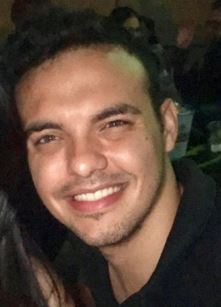 Albert Burgess-Hull
Albert Burgess-Hull
Real World Assessment, Prediction, and Treatment Unit
Translational Addiction Medicine Branch
Alumni (Member – 2022-2022)
